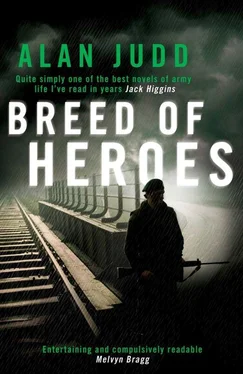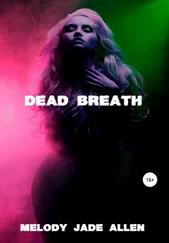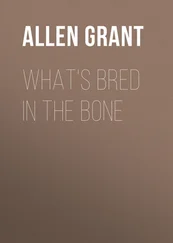‘I can understand all that, but I can’t believe it’s really necessary for you to walk around with a gun under your jacket like some sort of amateur James Bond.’
‘But that’s just what I’m saying. It’s because it seems ordinary that you don’t believe it’s necessary. You need to see the other side of the city before you can understand that.’
‘Are you sure you’re not deluding yourselves and creating the very thing you claim to be opposing?’
‘As sure as I can be.’ He looked at her calmly confident gaze as they passed through the crowds, and despaired of being able to convey the horrible unease which the apparent ordinariness of it all gave him. The week before, a policeman in plain clothes had been shot dead in his car in the Crumlin Road as he waited at the traffic lights. His fiancée was seriously injured. Charles despaired, too, of ever being able adequately to describe to her what had happened in the cul-de-sac the other evening. ‘We live in different worlds,’ he added uselessly.
She took her hand away from his. ‘You didn’t have to choose this one.’
Her car was in one of the city centre car parks and he accepted her offer of a lift back to the Factory because time was pressing. He didn’t want her to drive into any of the dangerous areas but since she had said she would anyway — to see how people lived — he thought it better to let her drop him off and then drive back than to go wandering off alone in some such place as the new estate where strange cars driven by unknown English women were likely to attract hostile attention.
They took the borrowed Mini along the Falls Road and he pointed out well-known trouble spots. Signs of recent rioting were gratifyingly visible. She was impressed, though still would not admit the need for him to carry a pistol. ‘I mean, it’s like carrying a pistol in Dublin,’ she said. ‘It would be absurd.’
‘Dublin is not like Belfast.’
‘You’ve never been there.’
‘That makes no difference.’
‘Of course it does.’
He pointed to a corner shop. ‘A man was murdered in there four weeks ago.’
‘What happened?’
‘Some Protestant extremists walked in and shot him.’
‘What did you do about it?’
‘We weren’t here then.’
They were waiting to turn right into one of the narrow streets that led eventually to the Factory, but their way was blocked by a group of women standing talking in the entrance to the street. Charles was so struck by their likeness to the harridans in the cul-de-sac that for some moments he relived his experiences of that evening, caught and frozen in a flash-back. He did not notice Janet’s growing impatience until she hooted indignantly. The women turned and looked down on them. A couple began swearing at them and very quickly several more people, including two men, came out of the corner shop to see what the trouble was. The next few seconds were a maze of vivid impressions for Charles in which the past was indistinguishable from the present. The ugly, hateful, contorted faces, the raised voices and harsh accents, the suddenness of it all and the ten-fold leap in tension brought him as near to blind panic as he had ever been. He did not know what was happening nor even whether he was doing anything about it. He sat in a kind of heavy, cold numbness, unable to respond. He was distantly aware of Janet shouting something through her open window and then the car jerked forward, the women parted and the narrow street was clear before them.
Janet accelerated angrily. ‘Really,’ she said, sounding, Charles thought afterwards, very like her mother, ‘anyone would think they owned the road, carrying on like that. Who on earth do they think they are? Stupid old bags. And one of them was holding a baby, did you see? She called me an English bitch. I told her she wasn’t fit to be a mother, standing in the middle of the road like that with a baby in her arms. If it hadn’t been for the baby I’d have run her over, the old cow. That’s just what she reminded me of, you know, a great, bellowing, stupid, ugly old cow.’
Charles said nothing at first. Very slowly, so that she would not notice, he took his hand away from the butt of his pistol, which he had grasped under his jacket. He did not remember gripping it. His mouth was dry, his throat tight and the palm of his hand tingling hot. He swallowed with some difficulty. ‘They are pretty awful, some of these people,’ he said.
‘I’m afraid my giving them a piece of my mind won’t have done much good for neighbourhood community relations. But, there you are, if they behave like that they must expect it. I’ve never seen anything quite like it. Serves them right if they’re unhappy.’ She changed gear and turned corners with unnecessary speed as he directed her towards the Factory. She pulled up abruptly outside the main gates, watched by the sentries. ‘God, what an awful place. D’you really have to live in there? I don’t know how you stand it.’
They kissed goodbye, a little awkwardly. ‘Write soon,’ she said.
‘I will.’
‘You’re all hot. Are you all right?’
‘Yes. It’s just coming back, you know.’
‘Are you sure, Charles? You’re sweating. You haven’t got ’flu or something, have you?’
‘Perhaps that’s it. I’ll let you know.’
‘I hope you’re all right. Look after yourself.’
‘And you.’
‘Bye.’
‘Bye.’ He got out and she drove off with a wave, obviously buoyed up by her confrontation with the women. He walked slowly in through the gate.
‘Some ’ave all the luck, sir,’ said one of the sentries, with a grin.
Seconds after he had reported back into the ops room Chatsworth pounced upon him. ‘Did you screw her?’ he asked.
‘No.’
‘Why not?’
‘There was nowhere to do it.’ It was a truthful response, but truthful in a trivial way. It was untruthful in that it allowed Chatsworth to assume that Charles shared his view of the relationship. Perhaps he did, ultimately, but the truth at that time was that he did not know how he viewed it.
‘Very unenterprising of you,’ said Chatsworth, disappointed. ‘There must be an empty sangar somewhere on the Peace Line. You’d have been all right as long as there wasn’t a riot.’
Charles was on duty until four the following morning, but when he finally crawled into his bed he was still preoccupied with his reaction to the women in the street that afternoon. Janet had reacted decisively and effectively. What she had done could even be called healthy and normal. He felt that his own reaction had been more than simple indecision. It had amounted to a paralysis of the conscious powers. Perhaps there was some excuse after the events in the cul-de-sac the other evening, or perhaps less because he should have learnt. He imagined that Janet would have coped with the cul-de-sac better than he had. She would certainly have fired the rubber-bullet gun, for all her stated dislike of violence. He, on the other hand, could well have shot someone dead that afternoon, acting unconsciously and unnecessarily out of fear. Fear, after all, was what it seemed to come down to.
Life in the Factory was monotonous but, paradoxically, the time seemed to pass quickly. Charles often had the feeling that there was much he should remember, perhaps even record in a diary, yet successive days and nights were so much alike that he could not sort one from the other. Features of military life that seemed at first to be undyingly memorable soon became so obvious and mundane that they were no longer noticed and were soon forgotten. Overall, it was the drudgery and the pettiness that were ingrained most deeply into his soul. Incidental details, such as what should be worn with what and when, had an importance which sometimes overshadowed even operational matters. At their worst these could give to Army life a horror unimagined by mere civilians, as Charles now realised. It was no one’s fault that the horror was so little known. The experience could not be conveyed to those who had not had it. It was like fear and suffering, an experience so particular to each man as to be ultimately untranslatable, except in general terms. Radio-watching during the long hours of the night, patrolling the dirty, unhappy and unfriendly streets, returning to a grim and noisy home where there was no possibility of privacy, eating, living and working with the same people amidst the sounds and smells of a hundred and twenty men cramped into poor conditions all contributed to a life which seemed literally to be monotone. The streets were no relief from the Factory nor the Factory from the streets, but it was necessary to keep changing one for the other in order to make both more bearable.
Читать дальше












